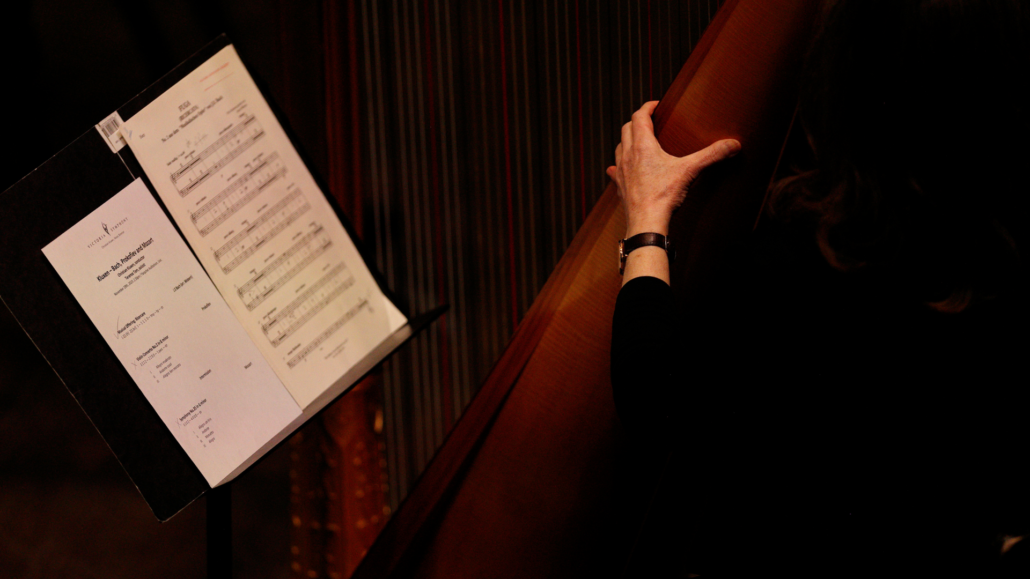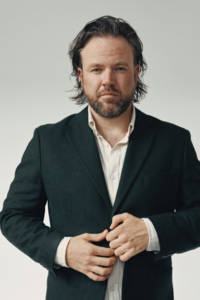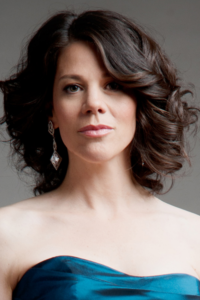KLUXEN – BRAHMS SYMPHONY NO. 3
Christian Kluxen enjoys working with singers, and that’s amply evident from the Victoria Symphony’s 2024-25 season. But the orchestra’s music director also has very particular requirements for the divas and divi that he has chosen to feature.
“For me, often it’s not so relevant to have a beautiful voice,” he explains. “For me, it’s whether you can feel the singer’s intention—whether the singer is someone who cares about delivering and communicating the message.”
In opera, when the tunes are coddled in opulent sets, the singers dressed in costume, and there’s a dramatic plot to be followed, other qualities can come into play. But in lieder, Kluxen says, “You just have to let the text speak for itself.
“You have to find this very special balance where the voice shouldn’t overpower the emotion,” he continues. “You shouldn’t make it a drama, but you should still have enough layers in how you perform that everyone can feel what is happening. It’s a bit like when you have a role in a theatre production. As an actor, to get a group of people to see what you are doing on-stage, you have to overdo things sometimes, and it’s the same in opera. But if you see a film, where they zoom up into your face, you can do very subtle things. In some ways lieder can be compared to that, because a lied is kind of a zoom onto one situation or one emotion, and it stays on that emotion, often through the whole song. So you don’t have to build a drama; you can simply communicate it very subtly.”
At the top of Kluxen’s list of singers with this rare gift is Canadian mezzo-soprano Allyson McHardy, who made a particularly strong impression on the conductor when she performed Gustav Mahler’s Rückert Lieder with the VS in 2022. Afterwards, Kluxen says, he immediately invited McHardy back to sing Peter Lieberson’s Neruda Songs, originally written for the composer’s wife, Lorraine Hunt Lieberson. It’s a work that Kluxen has been enamoured of since hearing it in Carnegie Hall in 2008, in its first performance following the death of its dedicatee.
“The composer was there, and the orchestra was the Chicago Symphony with Bernard Haitink conducting, and it was such an emotional experience that I will never forget it,” he recalls, adding that after the performance, Peter Lieberson came on-stage and hugged singer Kelley O’Connor. “It was like he passed on the work, and said ‘It’s okay now that someone else does it.”
For this we can be thankful. Pablo Neruda was many things—revolutionary, diplomat, Nobel laureate—but perhaps most of all he was a kind of 20th-century Rumi, (the 13th-century Persian poet and philosopher) blessed with an ability to find the universal or even the cosmic in his poems of devotion.
“When you read them,” Kluxen says, “you will understand how he is not writing in a casual and stupid way about love and loss, but in the best, real, authentic way, in which love becomes stronger with loss, or with the potential of losing love. It’s not melancholy; it’s not thinking back on someone that you loved once, and on all the great times you had together. It’s deeper than that—and that is very clearly communicated in Lieberson’s music.”
A different kind of love is expressed in Benjamin Britten’s What the Wild Flowers Tell Me, an arrangement of the second movement of the Austrian composer’s Symphony No. 3 in D minor. Here it’s the love of one master for an older peer and inspiration—and given that it was written in 1941, well before Mahler’s rediscovery by the general public, Britten seems quite prescient in recognizing and adoring Mahler’s bittersweet complexities.
Love, again, forms the subtext of Johannes Brahms’ Symphony No. 3 in F major, but exactly what sort of love will forever be an enigma. The composer and life-long bachelor was famously reticent on the subject of his private life, instead cautioning listeners that he preferred to speak through his music. Brahms also liked to tease through his music: the Symphony No. 3’s opening motif encodes the cipher F-A-F, which many musicologists believe stands for the composer’s personal motto, frei aber froh, or “free but happy”. Further complexities emerge when one discovers that this is a play on the great violinist Joseph Joachim’s own F-A-E motto, frei aber einsam (free but lonely). And then what should we make of the fact that both Brahms and Joachim liked to play with musical ciphers when visiting Robert and Clara Schumann in Düsseldorf?
“Brahms was not happy being alone,” Kluxen contends. “He was miserable being alone, and he was longing for being with someone. Why he wasn’t is a different discussion, but what you can say—and this is just what I imagine—is that the symphony was either composed close to Düsseldorf, where he met the Schumanns for the first time, or else it was composed in Wiesbaden, which is also close to the Rhine. I imagine that he was sitting there looking at the Rhine, remembering the first time he met the Schumanns and the wonderful times they had together. So you can say that, in that context, Brahms deals a lot with love and loss.”
Kluxen finds musicological evidence for this interpretation in the fact that the second theme we hear in Brahms 3 is a quote from Schumann’s own Symphony No. 3 in E-flat major, itself inspired by the broad and majestic waters of the Rhine. But what he loves best about the work is its finale.
“After this huge, monumental effort,” he notes, “it ends so slowly and so softly that it just floats into the air.”
This, too, is enigmatic, but perhaps what Brahms is saying is that while some forms of love can evaporate as thoroughly as morning mist on the Rhine, they can also leave an impact that will assuredly last for centuries.
Notes by Alex Varty



 Christian Kluxen, conductor
Christian Kluxen, conductor